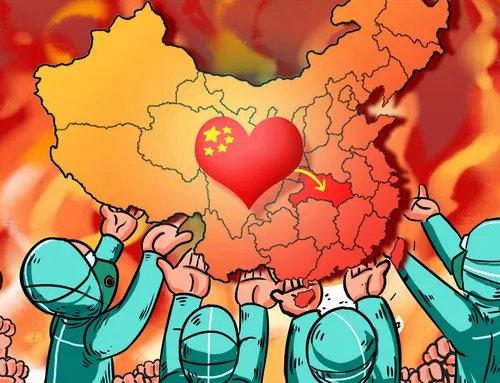Comparison between a China sourcing agent and a Trading company
There are many different channels of importing from China, through trading companies, manufacturers, suppliers(that get their own branded or designed products made by manufacturers), and sourcing agents. Among them, I think the sourcing agent and the trading company are the most similar types of suppliers. This article is intended to make a comparison between the two hoping you shed some light on how to make your choice.
The difference between a China sourcing agent and a trading company actually is very small:
What they have in common:
1. They both make money by having a little of margin on per product cost.
Most sourcing agents may give you a pricing structure suggesting they make a bigger percentage for small transactions and a smaller percentage for larger imports but that in most cases is not true. Those numbers are set only to make importers think they have the cost breakdown clearly setting apart what they pay for the goods and what they pay for the agent services. As an experienced sourcing agent based in Shenzhen, I have visited several other competitors in my life and I can assure you that is just a marketing trick. So if you are observing purely from a money perspective, you still have to acquire numbers from multiple trading companies or suppliers or some other sourcing agents to do a good comparison.
However, another important advice is, when you are importing from China, price is definitely not the only factor you need to take into consideration in setting or optimizing your supply chain, there are many other factors you will find that are far more important (Important Factors to Keep in Mind in Choosing Your Suppliers).
Always keep in mind there is no free lunch in this world, if you are importing millions of dollars of business in years or decades and you carry out the transactions with a supplier, will you be sure that you feel totally safe if an agent charges you only say 500usd per month or only 1-2% as commission? Will you feel really confident that the agent is really capable of making the exports smooth with minimum pay? If yes, using one-off-deal agents on Fiverr or Upwork might be a better option for you, but they might send you a list of “best suppliers” and don’t have to take any responsibility.
2. They both are able to provide a one-stop portal for global buyers to acquire goods from China.
To offer that one-stop export portal, they need to have the capabilities to find out and connect with Chinese factories and make sure the factories understand what the customer’s needs and are willing to satisfy those needs; they need to have strong ties with a list of trustworthy shipping companies that are able to ship the goods to overseas with good rates, acceptable delivery time and smooth customs clearance all take care of. And above all, they need to be able to understand the buyers’ requirements accurately and communicate with you with no big error.
3. They both have English speaking capability and may both have a bank account to receive money from overseas smoothly and enable exports to other countries.
Some agents may not have an international bank account so they have to make money by getting commission from the factories or other types of suppliers, in this regard, their financial gains are not as secure as other better-equipped agents because their suppliers may sever the relationship if the agents’ value in bringing more orders turns out to fade away over time.
With that being said, many global buyers may insist they want to deal with manufacturers only but a large majority of real factories simply don’t have an international sales department in position and have nobody being able to communicate in English and may not even have a bank account that helps them transact with overseas. So even they may think they are dealing with manufacturers on Alibaba, they may just never find they actually have been dealing with trading companies for years or decades.
They are different in the below aspects:
1. How they get their customers:
A sourcing agent gets their customers usually by having a website indexed by Google and the customers usually find them by searching keywords on Google such as China sourcing agent, or <city name> sourcing agent (e.g. Shenzhen sourcing agent).
A trading company is more likely to get their customers by having a presence on Alibaba or having a website that’s also indexed by Google but usually they market themselves as a manufacturer.
2. What products they do:
A sourcing agent may do all possible products but a trading company may just deal in 1 fixed product niche or industry.
However, a trading company might sell the same product to various other customers and they keep approaching new customers that might “learn” from your own products. But a sourcing agent is more likely to provide 1 product to 1 customer only so your product idea is safer from being stolen.
3. Their organization setup:
Trading companies can be large or small companies but sourcing companies are usually small companies. But in both cases, you might be dealing with a one-man company if they are too small so if you care about the setup of the supplier you have to carry out your due diligence really well in advance.
4. Their honesty:
Obviously, the trading companies are more likely to lie, their first lie happens in the first conversation you have with them: we are a manufacturer. But at the same time, they may both make the same lie: we have the best price possible you can find. It’s business and the fact of life, you just sing along with it.
5. Though not being factories, they both can become great suppliers to you.
Essentially they are both options as a supplier, after doing your due diligence(making sure they can in some way make the factories value your business and deliver your products with high quality and acceptable lead time), if you give them enough amount of patience and understanding and trust, and you carry out the communication well with them, they may both gradually turn out great suppliers to you, they are your great ambassadors of conveying your positioning and strategies in China.
Author: Charlie Lin founder of BizShenzhen Sourcing (www.bizshenzhen.com)
Also available in Hubpages: https://hubpages.com/business/Comparison-between-a-China-sourcing-agent-and-a-Trading-company






